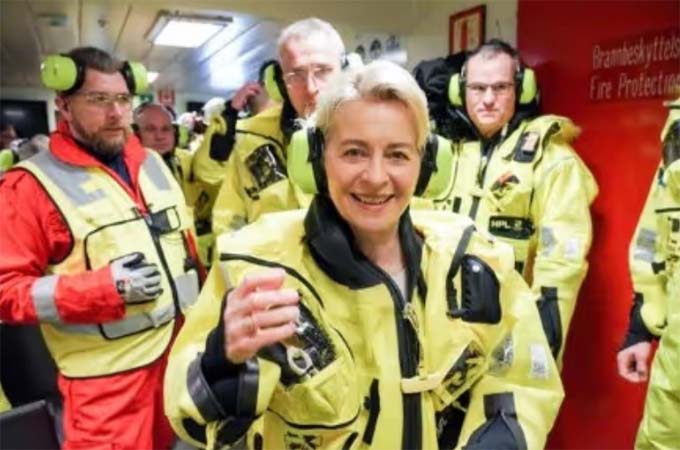
The heads of North Atlantic Treaty Organisation (Nato) and the European Commission flew to a North Sea platform to discuss the security of supplies and infrastructure, a visit underlining Norway's importance for gas shipments since Russia's invasion of Ukraine.
The Troll A platform extracts gas from Norway's biggest gas field. After a drop in Russian flows, the Nordic country last year became the largest gas supplier to the European Union (EU).
Nato Secretary General Jens Stoltenberg and European Commission President Ursula von der Leyen talked about the protection of infrastructure and gas supplies to Europe with Prime Minister Jonas Gahr Stoere and Equinor CEO Anders Opedal.
Security at Norwegian petroleum installations was increased after the explosions on the Nord Stream pipelines on September 26 in the Baltic Sea, with Nato allies providing military support.
Norway's energy infrastructure is vital, but vulnerable, because of its size, involving thousands of kilometres of pipelines as well as internet and power cables, Stoltenberg told reporters onboard Troll A.
"We cannot of course protect every metre of this infrastructure at every time," said Stoltenberg, clad in a bright yellow worksuit and white helmet.
"But what we do is that we have stepped up...exchanging intelligence information (and we have) closer monitoring of the infrastructure. We have increased our presence with more military capabilities."
As he spoke, a German Navy ship, a Norwegian coastguard vessel, a Norwegian military helicopter and a Nato maritime aircraft were patrolling near the platform, situated some 65 km (40 miles) offshore.
"The plan now is to exercise more, and be able to react fast, if something happens," said Stoltenberg.
In addition, Nato and the EU in January set up a task force to boost the protection of critical infrastructure in response to the Nord Stream explosions. Its first meeting took place on Thursday, von der Leyen said on Friday.
Norway's police security agency said in February that Russia would seek to gather more intelligence about Norway's oil and gas infrastructure as part of efforts to put pressure on European energy supplies.
Troll alone covered 11.3 per cent of EU gas consumption last year, according to operator Equinor. The field accounts for one third of daily Norwegian gas exports to Europe.
The gas from Troll is piped to a processing plant on Norway's west coast before it is piped again to the European Union and Britain.
The platform rests on four concrete pillars on the seabed. -Reuters









































































